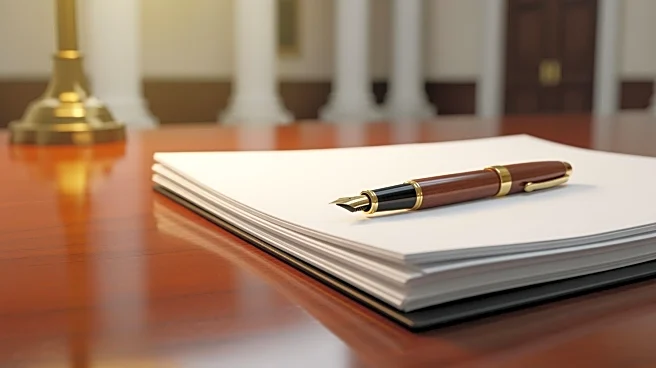Rapid Read • 8 min read
The 2025 WNBA All-Star Game, intended as a celebration of the league's achievements, has instead ignited a heated debate over player compensation. Caitlin Clark and other All-Stars wore shirts with the message 'Pay us what you owe us,' highlighting gender pay disparities in professional basketball. This sparked backlash from fans, with some arguing that the WNBA's financial losses do not justify increased player pay. The league has never turned a profit in its 28-year history, with losses escalating from $10 million annually to $50 million in 2024, despite revenues exceeding $200 million. The NBA, which owns 60% of the WNBA, has subsidized these losses since the league's inception in 1997. The debate has raised questions about the sustainability of the WNBA and the appropriateness of player compensation demands.
AD
The controversy surrounding the WNBA's financial situation and player compensation demands underscores broader issues of gender pay disparity in sports. The league's reliance on NBA subsidies highlights challenges in achieving financial independence and sustainability. The backlash from fans reflects a disconnect between the league's financial realities and player expectations. This situation could impact public perception of the WNBA and influence future negotiations regarding player salaries and league funding. The upcoming $2.2 billion media deal, set to begin in 2026, may provide financial relief, but questions remain about the league's ability to reach profitability without significant changes.
The WNBA faces critical decisions regarding its financial strategy and player compensation policies. The league must address fan concerns and explore ways to achieve profitability, potentially through structural changes or increased revenue streams. The upcoming media deal could offer a financial boost, but the league must ensure sustainable growth to justify player compensation demands. Stakeholders, including the NBA and WNBA players, will likely engage in discussions to find a balance between financial viability and fair compensation. The outcome of these discussions could shape the future of the league and its relationship with fans.
The debate over WNBA player compensation raises ethical questions about gender equality in sports. The league's financial struggles highlight the challenges faced by women's sports in achieving parity with men's leagues. This situation may prompt broader discussions about investment in women's sports and the societal value placed on female athletes. The WNBA's efforts to address these issues could influence cultural perceptions of gender roles in sports and contribute to long-term shifts in the industry.
AD
More Stories You Might Enjoy











